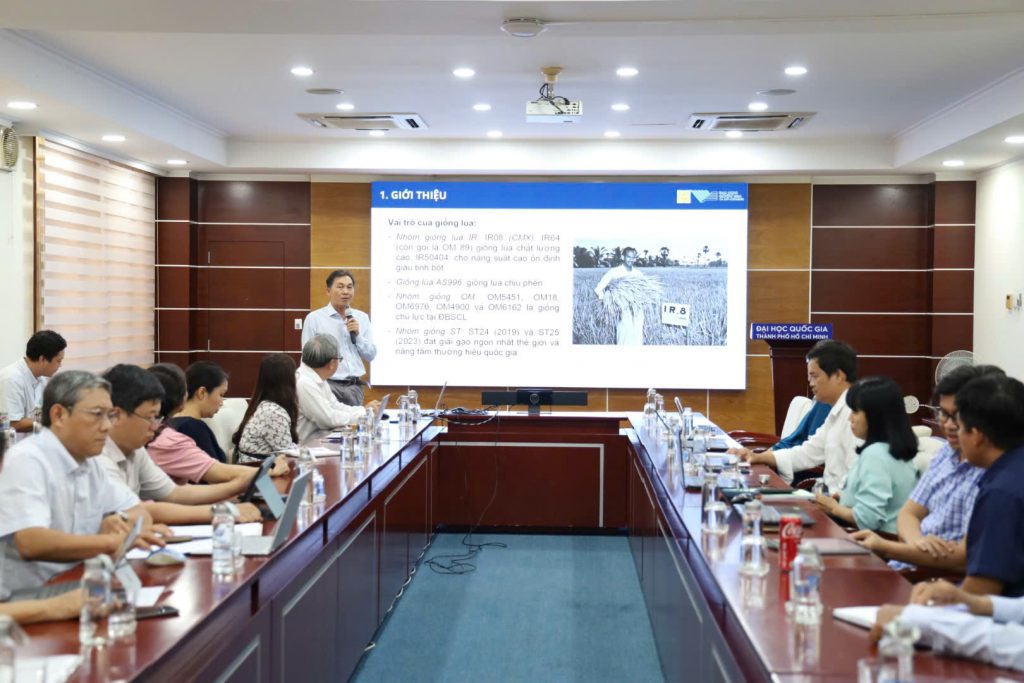VNUHCM develops Research program on rice varieties adapted to climate change
On June 5, 2025, Vietnam National University Ho Chi Minh City (VNUHCM) organized a workshop titled “Discussion on Developing a Research Framework for Climate Change-Adaptive Rice Varieties at An Giang University.” The workshop recorded many practical contributions and discussions, aiming to research and develop high-quality rice varieties suitable for specific ecological zones.

An Giang University has collected and preserved nearly 500 rice varieties/lines, establishing a crucial genetic resource for research, breeding, and technology transfer. Several ongoing rice variety research projects include: evaluating agronomic traits and quality of traditional rice varieties/lines to establish a rice germplasm collection; researching, conserving, and developing traditional rice varieties for the flood-prone areas of the Mekong Delta; and supporting research for yield trials of local rice varieties in the Mekong Delta.
The research group for climate change-adaptive rice varieties at An Giang University believes that, in the current context, implementing this project is essential to effectively respond to climate change and saltwater intrusion. The goal is not only to contribute to ensuring food security and sustainable agricultural development but also to build a diverse and stable genetic foundation for rice – serving as a basis for breeding new varieties suitable for specific ecological zones and market demands. Simultaneously, research activities also play a role in connecting and attracting cooperation from experts in the field of genetics.

The research proposal focuses on three main contents: developing infrastructure and modernizing research processes through the application of information technology; diversifying genetic resources for new variety breeding; and developing potential rice varieties through nutritional evaluation, DNA sequencing, and intellectual property registration. The research group emphasizes a strategic analysis framework to select appropriate approaches, enhancing the effectiveness of germplasm conservation and organization.
Notably, the proposal applies modern technologies such as AI, sensors, image processing, and UAVs in analyzing agronomic parameters, while also building an integrated QR code database system for accurate information retrieval. To serve long-term research efforts, the group proposes investing in infrastructure including molecular biology equipment, IoT sensors, and AI-integrated data management systems, creating a solid foundation for innovation in breeding climate change-adaptive rice varieties.
The workshop received many valuable contributions from experts and scientists to finalize the research framework for climate change-adaptive rice varieties at An Giang University.
KHẮC HIẾU
